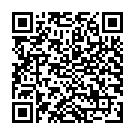|
|
|
| Module code: MST2.MA2 |
|
|
5V+2U (7 hours per week) |
|
8 |
| Semester: 2 |
| Mandatory course: yes |
Language of instruction:
German |
Assessment:
Written exam 120 min.
[updated 05.10.2020]
|
MST2.MA2 (P231-0119) Mechatronics and Sensor Technology, Bachelor, ASPO 01.10.2019
, semester 2, mandatory course
MST2.MA2 (P231-0119) Mechatronics and Sensor Technology, Bachelor, ASPO 01.10.2020
, semester 2, mandatory course
|
105 class hours (= 78.75 clock hours) over a 15-week period.
The total student study time is 240 hours (equivalent to 8 ECTS credits).
There are therefore 161.25 hours available for class preparation and follow-up work and exam preparation.
|
Recommended prerequisites (modules):
MST2.MA1 Mathematics 1
[updated 21.01.2020]
|
Recommended as prerequisite for:
MST2.MA3 Mathematics 3
[updated 21.01.2020]
|
Module coordinator:
Prof. Dr. Gerald Kroisandt |
Lecturer: Prof. Dr. Gerald Kroisandt
[updated 14.12.2018]
|
Learning outcomes:
After successfully completing this course, students will be able to calculate complex numbers and complex functions and represent them in the complex plane. They will have advanced knowledge and the corresponding technical skills in differential and integral calculus. Based on their knowledge of the solution structure for second-order differential equations and their ability to determine solutions, students will be able to investigate and calculate the fundamental time behavior of elementary and complex systems in various fields.
[updated 05.10.2020]
|
Module content:
Complex numbers and functions
Definition and representation
The Gaussian Plane
Forms of representation and conversions
Basic arithmetic operations
Powers and roots of complex numbers
Differential calculus II
The differential of a function
Extrema and inflection points
Functions with several independent variables
n-dimensional space
Multivariate functions
Differential calculus
Finding extrema
Gradient, divergence, rotation
Integral calculus II
Integration techniques
Applications of integral calculus
Improper integrals
Numerical integration
Line integral, definition and examples
Differential equations (DGl)
Basic terms
First order differential equations
- Geometric interpretations
- First order differential equation with separation of variables
- Separation of variables and variation of constants
Second order differential equations
- Second order linear differential equations with constant coefficients
- Properties of linear differential equations
- Second order linear homogeneous differential equations
- Second order linear nonhomogenous differential equations
- Second order linear differential equations with constant coefficients
[updated 05.10.2020]
|
Teaching methods/Media:
Blackboard, video projector, transparencies as lecture notes
[updated 05.10.2020]
|
Recommended or required reading:
- Papula, Mathematik für Ingenieure und Naturwissenschaftler, Band 2+3
- Meyberg und Vachenauer, Höhere Mathematik, Band 1+2
- Bartch, Taschenbuch mathematischer Formeln
[updated 05.10.2020]
|


